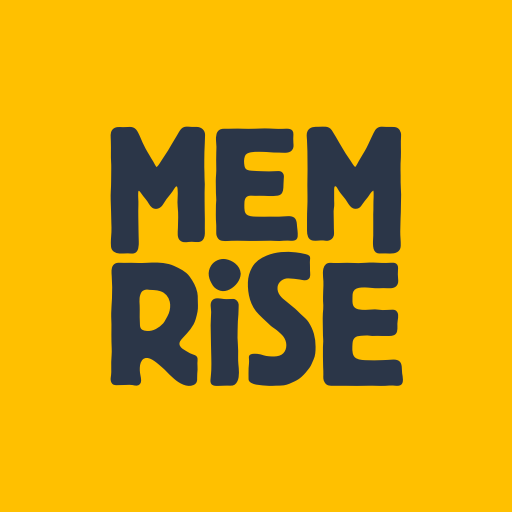- Published on
Your Unique Path: The Best Way to Learn German is the One That Works for YOU
- Authors
- Name
- Max Müller
Embark on Your German Adventure: A Personalized Approach! 🇩🇪✨
Are you ready to dive into the rich world of the German language? Perhaps you're dreaming of exploring bustling Berlin markets, hiking through Bavarian Alps, or simply connecting with German-speaking friends and colleagues. Whatever your motivation, learning German can be an incredibly rewarding journey! 🚀
But here's a secret: there isn't a single "best way to learn German" that fits everyone. The most effective German study is the one that's tailored to you – your learning style, your schedule, and your goals. This blog post will guide you through creating your own personalized language learning adventure, emphasizing combined methods for holistic success. Let's get started! 🎉
German is spoken by over 100 million people worldwide and is the most widely spoken native language in the European Union! Learning it opens up a world of opportunities in business, culture, and travel. 🌍
1. Discovering Your Learning Style: The First Step to Personalized Learning 💡
Before you pick up your first German textbook or download an app, take a moment to understand how you learn best. Are you a visual learner, an auditory learner, or someone who learns by doing? Recognizing your style is crucial for effective German study.
Common Learning Styles: * Visual Learners: You prefer to see things. Flashcards, diagrams, subtitles, and written notes work well for you. 🖼️ * Auditory Learners: You learn best by hearing. Podcasts, music,
conversations, and repeating words aloud are your allies. 🎧 * Reading/Writing Learners: You thrive on reading texts and taking detailed notes. Grammar explanations and written exercises are your comfort zone. 📝 * Kinesthetic Learners: You learn by doing and experiencing. Role-playing, physically labeling objects, or even walking while reviewing vocabulary can help. 🚶♀️
Think back to subjects you excelled at in school. How did you study for them? Did you draw diagrams, listen to lectures, rewrite notes, or participate in hands-on activities? This can give you clues about your preferred learning style. 🤔
Once you have an idea of your dominant style, you can prioritize methods that resonate with you, making your learning process more enjoyable and efficient. This is the core of personalized language learning!
2. The Core Pillars of German Learning: Building a Strong Foundation 🧱
No matter your learning style, every successful German learner needs to master certain fundamental areas. Think of these as the building blocks of your language proficiency.
A. Master the Melodies: Pronunciation & Listening 🗣️👂
German pronunciation can seem daunting at first, but it's very consistent. Practice those unique sounds early on! Listening is equally vital for understanding native speakers and internalizing rhythm and intonation.
- Listen to German music and podcasts regularly.
- Mimic native speakers – repeat phrases you hear.
- Use online dictionaries with audio pronunciations (e.g., dict.cc, Leo.org).
- Record yourself and compare it to native audio.
B. Word Power: Vocabulary Acquisition 📚
A broad vocabulary is your key to expressing yourself. Don't just memorize isolated words; learn them in context!
- Flashcards (physical or digital): Spaced Repetition Systems (SRS) like Anki are incredibly effective.
- Themed Lists: Group words by topic (e.g., "food," "travel," "daily routines").
- Sentence Mining: Learn new words within full sentences.
- Reading: Encounter new vocabulary naturally in books, articles, or news.
C. The Language's Skeleton: Grammar 🏗️
German grammar has a reputation for being complex, but it's logical! Understanding cases (nominative, accusative, dative, genitive), verb conjugations, and sentence structure will unlock your ability to form correct sentences.
Man hört nur, was man versteht. (One only hears what one understands.)— Johann Wolfgang von Goethe
While grammar rules might feel tedious, they provide the framework for communication. Don't shy away from them!
3. Beyond the Books: Combined Methods for Holistic Learning 🌐
Relying solely on one method can lead to stagnation. The best way to learn German effectively involves combining various resources and activities to engage different parts of your brain and keep motivation high. This is where combined methods truly shine!
A. Digital Tools & Apps 📱 Language learning apps are fantastic for daily practice and gamified learning.


B. Language Exchange & Tutors 🗣️🤝 Speaking is often the hardest skill to practice alone.

Don't wait until you feel "ready" to start speaking. Even simple sentences will build confidence and activate your passive knowledge. Find a language partner or an online tutor!
C. Immerse Yourself with Media 🎬🎶
Bring German into your daily life! This is an incredibly effective German study method that makes learning fun.
- Podcasts: Great for passive listening during commutes or chores. Try "Coffee Break German" or "Slow German."
- Music: Listen to German bands and artists. Look up lyrics and try to understand them.
- Movies & TV Shows: Start with subtitles (German or English), then try without! Netflix has a great selection.
- Books & News: Start with children's books or simplified news (e.g., "Nachrichtenleicht").
For more in-depth strategies and a comprehensive overview of various techniques, check out our The Ultimate Guide: Discover Your Best Way to Learn German Effectively. It's packed with practical tips to help you unlock your full learning potential! 🌟
4. Staying Motivated and Overcoming Hurdles 🛤️
The path to fluency isn't always smooth. There will be days when you feel frustrated or overwhelmed. That's completely normal! The key is to stay consistent and celebrate your progress.
Avoid comparing your progress to others. Everyone learns at their own pace. Focus on your personal growth and what you've achieved! 💪
- Set Realistic Goals: Instead of "I want to be fluent in 3 months," try "I will learn 10 new words a day" or "I will have a 15-minute conversation by month 3." 🎯
- Track Your Progress: Use a journal or an app to log your study time, new vocabulary, or successful conversations. Seeing your achievements can be a huge motivator.
- Find Your "Why": Remind yourself why you started learning German. What are your ultimate goals? Keeping this in mind will fuel your determination.
- Embrace Mistakes: Mistakes are learning opportunities, not failures! Native speakers appreciate your effort to communicate. 🤗
Conclusion: Your Journey, Your Success! 🚀
Learning German is a Marathon, not a Sprint. It's a deeply personal journey, and the best way to learn German is truly the one you design for yourself. By combining different methods, understanding your learning style, and staying consistent, you're not just learning a language; you're opening doors to new cultures, experiences, and connections.
So, go forth, experiment with different strategies, find what sparks joy in your learning process, and remember to celebrate every "Aha!" moment. Viel Erfolg! (Good luck!) 🎉
FAQ ❓
How long does it take to become fluent in German?
Fluency is subjective and depends on many factors, including your starting point, study intensity, and exposure to the language. Generally, with consistent study (10-15 hours a week), you can reach a conversational level (B1/B2) in 6-12 months. True fluency (C1/C2) can take several years of dedicated effort and immersion. 📈
Is German grammar really that hard?
German grammar can be challenging, especially its case system (nominative, accusative, dative, genitive) and gendered nouns. However, it's also very logical and consistent once you grasp the rules. Many learners find it less daunting once they start to see the patterns. Focus on understanding concepts rather than just memorizing rules. 🧠
Demystifying German Articles & Cases
Unlock the logic behind German noun genders and how articles change with grammatical cases.
Beispiele
Der Hund bellt.
💡 Hund is masculine, 'der' is used as the subject.
Ich sehe den Hund.
💡 Hund is the direct object, 'den' is used.
Ich gebe dem Hund Futter.
💡 Hund is the indirect object, 'dem' is used.
Das ist das Haus des Hundes.
💡 Possession, 'des' is used.
What's the best way to practice speaking if I don't live in Germany?
Online language exchange platforms (like italki, Tandem, HelloTalk), online tutors, and local German meetups (if available in your area) are excellent ways to practice speaking. Don't be afraid to make mistakes; every conversation is a step forward! 🗣️
Should I focus on vocabulary or grammar first?
Ideally, you should learn them in tandem. Basic grammar is necessary to put words together, and vocabulary is essential to have something to say. For beginners, a balanced approach where you learn common phrases and essential vocabulary alongside core grammar concepts (like verb conjugation and basic sentence structure) is most effective. ⚖️
Related Posts
The Ultimate Guide: Discover Your Best Way to Learn German Effectively
Unlock the secrets to effective German learning! This guide provides practical tips and actionable advice to discover the best way to learn German, whether you're a beginner or looking to level up. 🇩🇪✨
Top Digital Tools: The Best Way to Learn German with Apps & Online Resources 🇩🇪💻
Unlock the secrets to mastering German with the best digital tools! Discover top German learning apps, invaluable online German resources, and effective strategies for digital language learning that make the best way to learn German both fun and efficient. Dive in and transform your language journey! 🚀
Best Free Online German Courses in 2025: Top Platforms Compared
Discover the best free German courses online in 2025! This guide compares top platforms, helping you find the perfect resources to learn German at your own pace and budget. Start your German learning journey today! 🇩🇪